Plenary and Keynote Lecture
HOME > Scientific Program > Plenary and Keynote Lecture
• Plenary Lecture
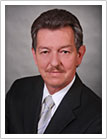
-
-
Prof. Dr.-Ing. Bernd Kieback
Technische Universität Dresden, Institute of Materials Science (IfWW), Chair Powder Metallurgy, Sintered and Composite Materials, Fraounhofer-Institute for Manufacturing and Advanced Materials, Germany - Title: Powder metallurgy for emerging Technologies
-
Prof. Dr.-Ing. Bernd Kieback
Biographical Sketch
1971-1976 Academic Studies “Physics”/”Physics of Crystals” at State University Kharkov
1976-1981 Scientific Assistant at Institute of Materials Science, TU Dresden (TUD)
1982 Graduation as Dr.-Ing. at TUD
1982-1985 Scientist at Institute of Solid State Physics and Materials Research Dresden (ZFW)
1985-1990 Group Leader “Carbide Composites” at ZFW Dresden
1987-1990 Head of Department “Tool Materials” at ZFW Dresden
1991 Director of Institute for Powder Metallurgy and Composite Materials at ZFW Dresden
since 1992 Director Fraunhofer-IFAM Branch Dresden for Powder Metallurgy and Composites
1992-1993 Head of Department Powder Technology Fraunhofer-IFAM Bremen
since 1993 Professor Powder Metallurgy, Sintered and Composite Materials TUD
2008-2011 Director of Institute of Materials Science at TUD
Functions 2004, 2008 Elected member of DFG Review Board 405/06 “Materials Science and Technology”
2002-2007 Chairman German Powder Metallurgy Committee (supported by DGM, DKG, VDI, VdEH, FPM)
Since 1988 Elected Member International Institute for Science of Sintering
Since 2008 Member Advisory Board for Innovation Strategy Ministry of Economic Affairs Sachsen-Anhalt
Since 2011 Chairman of the 1st Regionalforum Dresden der Deutschen Gesellschaft für Materialkunde e.V.
1971-1976 Academic Studies “Physics”/”Physics of Crystals” at State University Kharkov
1976-1981 Scientific Assistant at Institute of Materials Science, TU Dresden (TUD)
1982 Graduation as Dr.-Ing. at TUD
1982-1985 Scientist at Institute of Solid State Physics and Materials Research Dresden (ZFW)
1985-1990 Group Leader “Carbide Composites” at ZFW Dresden
1987-1990 Head of Department “Tool Materials” at ZFW Dresden
1991 Director of Institute for Powder Metallurgy and Composite Materials at ZFW Dresden
since 1992 Director Fraunhofer-IFAM Branch Dresden for Powder Metallurgy and Composites
1992-1993 Head of Department Powder Technology Fraunhofer-IFAM Bremen
since 1993 Professor Powder Metallurgy, Sintered and Composite Materials TUD
2008-2011 Director of Institute of Materials Science at TUD
Functions 2004, 2008 Elected member of DFG Review Board 405/06 “Materials Science and Technology”
2002-2007 Chairman German Powder Metallurgy Committee (supported by DGM, DKG, VDI, VdEH, FPM)
Since 1988 Elected Member International Institute for Science of Sintering
Since 2008 Member Advisory Board for Innovation Strategy Ministry of Economic Affairs Sachsen-Anhalt
Since 2011 Chairman of the 1st Regionalforum Dresden der Deutschen Gesellschaft für Materialkunde e.V.
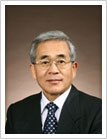
-
-
Prof. Jai-Sung Lee
Department of Materials Engineering, Hanyang University, Korea - Title: Progress in Powder Metallurgical Nanomaterials Processing
-
Prof. Jai-Sung Lee
Jai-Sung Lee received his Ph.D. in Materials Science at the University of Stuttgart in 1983 when working at Powder Metallurgy Laboratory of the Max-Planck Institute for Metal Research with Prof. Guenter Petzow. Since 1983 he is Professor of Hanyang University-ERICA Campus and served as Dean and Director of ERICA. His research interests are in processing of metal nanopowders, design of nanopowder feedstock for 3D net-shaping process and grain boundary diffusion in nanoparticulate materials. He has published more than 250 scientific publications, edited three books and holds more than 20 patents. Prof. Lee received several national and international awards for their achievements. He is a member of the National Academy of Engineering of Korea and fellow of the Alexander von Humboldt Foundation. He was President of the Korean Powder Metallurgy Institute and Director of Board of the Korean Research Council of Fundamental Science & Technology and the Asian Powder Metallurgy Association. He was also Technical Advisor to Samsung Electro-mechanics, R&D and Samsung Corning Ltd.
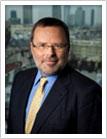
-
-
Prof. Krzysztof Kurzydłowski
Department of Materials Science and Engineering, Warsaw University of Technology, Poland - Title: Multiscale models of nanometals
-
Prof. Krzysztof Kurzydłowski
Director of the National Centre for Research and Development
Department of Materials Science and Engineering, Warsaw University of Technology,
Head of Division of Materials Design
Former Vice-Rector of Warsaw University of Technology and Dean of Faculty, Vice chairman of the Polish Research Council, Deputy Minister of Science and Higher Education
Member of European Materials Research Society (E-MRS) – Executive Committee, Fellow of the Institute of Materials (FIM), Member of ACARE (Advisory Committee on Aerospace Research in Europe), Member of the Executive Committee of Fusion for Energy (ITER)
Fields of scientific interest: Design of nano-materials, Materials for green energy
Department of Materials Science and Engineering, Warsaw University of Technology,
Head of Division of Materials Design
Former Vice-Rector of Warsaw University of Technology and Dean of Faculty, Vice chairman of the Polish Research Council, Deputy Minister of Science and Higher Education
Member of European Materials Research Society (E-MRS) – Executive Committee, Fellow of the Institute of Materials (FIM), Member of ACARE (Advisory Committee on Aerospace Research in Europe), Member of the Executive Committee of Fusion for Energy (ITER)
Fields of scientific interest: Design of nano-materials, Materials for green energy
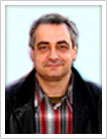
-
-
Prof. Eugene A. Olevsky
A distinguished Professor of Mechanical Engineering and the Director of Powder Technology Laboratory at the San Diego State University, San Diego, California. - Title : Fundamental Aspects of Spark-Plasma Sintering of Nano-Powders
-
Prof. Eugene A. Olevsky
Prof. Olevsky has obtained two M.S. degrees in Mechanical Engineering and Applied Mathematics (simultaneously) and Ph.D. degree in Materials Engineering. Prof. Olevsky’s primary area of expertise is in computational modeling and experimentation on powder processing, including novel ceramic, metallic, and composite material synthesis. Eugene Olevsky is the author of the broadly internationally recognized continuum theory of sintering.
Eugene Olevsky is the author of more than 300 scientific papers and more than 100 invited and keynote talks at various professional meetings. Prof. Olevsky has supervised more than 40 graduate and post-doctoral students; he serves also as the Director of the San Diego State University Doctoral Program in Engineering Sciences.
Dr. Olevsky’s contributions to research and education have been recognized by multiple awards and honors: he is a Fellow of the American Ceramic Society, a Fellow of the American Society of Mechanical Engineers, Humboldt Fellow; he is the recipient of the SDSU Alumni Association Outstanding Faculty Award and SDSU President Leadership Award. Prof. Olevsky is also a recent recipient of the Leading World Scientist Award of the Ministry of Science and Education of Russian Federation; he is an Honorary Member of the Ukraine Materials Research Society and a Full Member (Fellow) of the International Institute of Science of Sintering.
Eugene Olevsky serves as a co-chair of the series of International Sintering Conferences.
SDSU Powder Technology Laboratory directed by Prof. Olevsky is currently involved in the fundamental research of spark plasma sintering and multi-scale analysis of various powder processing techniques.
Eugene Olevsky is the author of more than 300 scientific papers and more than 100 invited and keynote talks at various professional meetings. Prof. Olevsky has supervised more than 40 graduate and post-doctoral students; he serves also as the Director of the San Diego State University Doctoral Program in Engineering Sciences.
Dr. Olevsky’s contributions to research and education have been recognized by multiple awards and honors: he is a Fellow of the American Ceramic Society, a Fellow of the American Society of Mechanical Engineers, Humboldt Fellow; he is the recipient of the SDSU Alumni Association Outstanding Faculty Award and SDSU President Leadership Award. Prof. Olevsky is also a recent recipient of the Leading World Scientist Award of the Ministry of Science and Education of Russian Federation; he is an Honorary Member of the Ukraine Materials Research Society and a Full Member (Fellow) of the International Institute of Science of Sintering.
Eugene Olevsky serves as a co-chair of the series of International Sintering Conferences.
SDSU Powder Technology Laboratory directed by Prof. Olevsky is currently involved in the fundamental research of spark plasma sintering and multi-scale analysis of various powder processing techniques.
• Keynote
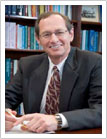
-
- Prof. Randall M. German
- Title : Sintered Nanoscale Structures – The Need for Novel Processing and Compositions to Realize Novel Properties
Rand obtained his PhD in Mechanical Engineering from the University of California at Davis,
following an MS degree in Metallurgical Engineering from The Ohio State University and an
honor’s BS degree in Materials Science and Engineering from San Jose State University. He has
distinguished alumnus awards from all three schools. He completed a management science
program at the RPI’s Hartford Graduate Center and an intensive management program at Harvard.
He has an honorary doctorate from the University Carlos III de Madrid. In addition, he is a Fellow of the American Society for Metals, American Powder Metallurgy Institute, and American Ceramic Society. His awards include the Tesla Medal, Nanyang Professorship, Japan Institute for Materials Research Lectureship, Penn State Engineering Society Outstanding Research Award and Premiere Research Award, Distinguished Research Award from the Japan Society for Powder Metallurgy, University of California at Davis Distinguished Engineering Alumni Award, The Ohio State University Distinguished Engineering Alumnus Award, San Jose State University Award of Distinction, Technical Development Award from the Japan Institute of Metals, Honorary Member of Alpha Sigma Mu, Society of Automotive Engineers Teetor Award, Honorary Professorship at Northeast University of Technology, RPI Early Career Award, Geisler Young Metallurgist Award, Kuczynski Prize, and Samsonov Prize. He averages 20-off campus invited presentations per year. Rand is listed in several Who's Who and serves as an editor or key reader for more than 20 journals. He held several director positions, including two terms with APMI, and served on the Fellows Awards Committee of two professional societies. He headed 19 chaired professor searches. Rand is currently on the board of directors of International Nontoxic Composites and Allomet, and serves on the Technical Advisory Board for Pangaea Ventures Funds I, II, and III. He has been involved in a dozen start-up companies; some now owned by major corporations.
Professor German has obtained $56 million in research funding, supervised more than 100 theses and 100 postdoctoral fellows, published over 990 articles, 24 patents, and 17 books, including the most cited publications in sintering and powder metallurgy Powder Metallurgy and Particulate Materials Processing (2005), Liquid Phase Sintering (1985), Sintering Theory and Practice (1996), and Injection Molding of Metals and Ceramics (1997). He edited 19 books and co-chaired more than 30 conferences. His h-factor for publication citations is 46 with 1464 for his top publication. His email is rgerman@mail.sdsu.edu or randgerman@gmail.com and telephone is 858-922-4985.
He has an honorary doctorate from the University Carlos III de Madrid. In addition, he is a Fellow of the American Society for Metals, American Powder Metallurgy Institute, and American Ceramic Society. His awards include the Tesla Medal, Nanyang Professorship, Japan Institute for Materials Research Lectureship, Penn State Engineering Society Outstanding Research Award and Premiere Research Award, Distinguished Research Award from the Japan Society for Powder Metallurgy, University of California at Davis Distinguished Engineering Alumni Award, The Ohio State University Distinguished Engineering Alumnus Award, San Jose State University Award of Distinction, Technical Development Award from the Japan Institute of Metals, Honorary Member of Alpha Sigma Mu, Society of Automotive Engineers Teetor Award, Honorary Professorship at Northeast University of Technology, RPI Early Career Award, Geisler Young Metallurgist Award, Kuczynski Prize, and Samsonov Prize. He averages 20-off campus invited presentations per year. Rand is listed in several Who's Who and serves as an editor or key reader for more than 20 journals. He held several director positions, including two terms with APMI, and served on the Fellows Awards Committee of two professional societies. He headed 19 chaired professor searches. Rand is currently on the board of directors of International Nontoxic Composites and Allomet, and serves on the Technical Advisory Board for Pangaea Ventures Funds I, II, and III. He has been involved in a dozen start-up companies; some now owned by major corporations.
Professor German has obtained $56 million in research funding, supervised more than 100 theses and 100 postdoctoral fellows, published over 990 articles, 24 patents, and 17 books, including the most cited publications in sintering and powder metallurgy Powder Metallurgy and Particulate Materials Processing (2005), Liquid Phase Sintering (1985), Sintering Theory and Practice (1996), and Injection Molding of Metals and Ceramics (1997). He edited 19 books and co-chaired more than 30 conferences. His h-factor for publication citations is 46 with 1464 for his top publication. His email is rgerman@mail.sdsu.edu or randgerman@gmail.com and telephone is 858-922-4985.
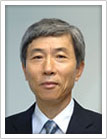
-
-
Prof. Suk-Joong, L. Kang
Department of Materials Science and Engineering, Korea Advanced Institute of Science and Technology, Korea - Title : Repetitive Abnormal Grain Growth and its Mechanism in a Nano-Structured Model System of Ni
-
Prof. Suk-Joong, L. Kang
Suk-Joong L. Kang is a distinguished professor in the Department of Materials Science and Engineering and the director of the Center for NanoInterface Technology at the Korea Advanced Institute of Science and Technology (KAIST). He received a B.S. degree in Metallurgy from Seoul National University, an M.S. degree in Materials Science and Engineering from KAIST, a Dr-Ing degree in Materials from the Ecole Centrale de Paris, and a Dr. d’Etat degree in Physical Science from the University of Paris VI. After joining KAIST in 1980, he also served as a visiting Professor or researcher at the Stuttgart Max-Plank-Institut (’82-’83, ’88-’89), at Samsung Electromechanics (’93-’94), at the University of New South Wales (’01-’02) and at the University of Tokyo (’08). Kang has published more than 260 papers on sintering and microstructural evolution in ceramics and metals. Kang is the author of the text, Sintering: Densification, Grain Growth and Microstructure, published in 2005. He developed the “Pore Filling Theory” of liquid phase sintering and demonstrated diffusion induced interface migration and recrystallization in alumina and perovskites. During the last 14 years he has particularly contributed to the understanding of microstructural evolution by structural transition and defect formation at interfaces. He introduced the concept of boundary structure-dependent grain growth behavior, and developed the principle of microstructural evolution. Kang is a fellow of the American Ceramic Society, and a member of the World Academy of Ceramics, the Korean Academy of Science and Technology, and the National Academy of Engineering in Korea. He is the recipient of academic awards from the Korean Institute of Metals and Materials and the Korean Ceramic Society, the Sosman Award from the American Ceramic Society, the Inchon Prize from the Inchon Memorial Foundation, and the Korea Engineering Award from the President of Korea.
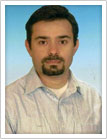
-
-
Prof. Dr. Burak ÖZKAL
ITU Chemical & Metallurgical Faculty, Metallurgical & Materials Science Engineering Dept., Turkey - Title : Recent Efforts on Fe-Mn-Si-Cr-Ni based Shape Memory Alloys via Powder Metallurgy
-
Prof. Dr. Burak ÖZKAL
Education:
BSc. İstanbul Technical University (ITU), Metallurgical Engineering. 1986-1991 Dissertation Topic: ''Mechanical Alloying Process and it’s Applications for Production of High Technology Materials”, 1991.
MBA Marmara University(MU),Business Administration Faculty, Contemporary Business Management Program, 1990-1992.
MSc. İstanbul Technical University (ITU), Institute of Science and Technology, Materials Science Program, 1991-1994. Dissertation Topic: ''Effect of Initial Powder Properties on the Production of Tungsten Heavy Alloys Produced via Liquid Phase Sintering”. 1994
PhD. İstanbul Technical University (ITU), Institute of Science and Technology, Materials Science Program, 1994-2002 Dissertation Topic: “Comparative Sintering Investigations of Copper Coated Tungsten Powders”
Work Experience:
- TUBITAK- NATO-A2 Scholarship 1998. (Visit to Penn State P/M Lab under supervision of Randall M. German)
- World Young Fellow Meeting 2004, Presentation Award, “Special Recognition” The 42nd Symposium on Basic Science of Ceramics, Nagaoka-Japan, Ceramic Society of Japan, January 2004.
BSc. İstanbul Technical University (ITU), Metallurgical Engineering. 1986-1991 Dissertation Topic: ''Mechanical Alloying Process and it’s Applications for Production of High Technology Materials”, 1991.
MBA Marmara University(MU),Business Administration Faculty, Contemporary Business Management Program, 1990-1992.
MSc. İstanbul Technical University (ITU), Institute of Science and Technology, Materials Science Program, 1991-1994. Dissertation Topic: ''Effect of Initial Powder Properties on the Production of Tungsten Heavy Alloys Produced via Liquid Phase Sintering”. 1994
PhD. İstanbul Technical University (ITU), Institute of Science and Technology, Materials Science Program, 1994-2002 Dissertation Topic: “Comparative Sintering Investigations of Copper Coated Tungsten Powders”
Work Experience:
- 1991~1992 Project Engineer, TUBITAK, Misag-17 Project, ITU Chemical &Metallurgical Faculty, Metallurgical & Materials Science Engineering Dept.
- 1992~2003 Research Assistant, ITU Chemical & Metallurgical Faculty, Metallurgical & Materials Science Engineering Dept.
- 2003~2011 Assistant Prof. ITU Chemical & Metallurgical Faculty, Metallurgical & Materials Science Engineering Dept.
- 2011-Current Assoc. Prof. ITU Chemical & Metallurgical Faculty, Metallurgical & Materials Science Engineering Dept.
- TUBITAK- NATO-A2 Scholarship 1998. (Visit to Penn State P/M Lab under supervision of Randall M. German)
- World Young Fellow Meeting 2004, Presentation Award, “Special Recognition” The 42nd Symposium on Basic Science of Ceramics, Nagaoka-Japan, Ceramic Society of Japan, January 2004.
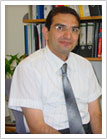
-
-
Prof. A. Simchi, PhD
Department of Materials Science and Engineering and Institute for Nanoscience and Nanotechnology Sharif University of Technology, Tehran, Iran -
Title : Powder metallurgy processing of metal matrix
nanocomposites: Microstructure and Mechanical Performance
-
Prof. A. Simchi, PhD
Dr. Abdolreza (Arash) Simchi received BS (1991), MS (1993) and PhD (1999) with the highest rank from the Materials Science and Engineering Department at Sharif University of Technology (SUT, I.R.Iran). He holds the rank of Distinguished Professor at SUT and Distinguished Researcher in Engineering Sciences at national level. Dr. Simchi has acquired more than five years international work experiences in a capacity of Visiting Professor and Academic Visitor in accredited universities and institutes including University of Toronto (Toronto, Canada), Imperial College London (London, UK), Vienna University of Technology (Vienna, Austria), Max-Planck Institute (Potsdam, Germany), and Fraunhofer Institute IFAM (Bremen, Germany). He is a fellow of the Alexander von Humboldt Foundation (Bonn, Germany) and holds the 2002 Kawrazmi International Award (the highest national award) and World Intellectual Property Award (as the best young inventor, United Nation Organization). Dr. Simchi has received many other international and national awards and fellowships such as EPMA Award to Materials Development, Dr. Mojtahedi Award for Technology Development, Royal Society fellowship, Nano Award, etc. He is ranked by The Iran Nanotechnology Initiative Council as Top Ten in Nanoscience and Technology among 2650 active professors and researchers in Basic Science, Engineering, and Medicine for four consecutive years of 2009-2012 from the Vice President in Science and Technology. The activities of Dr. Simchi span a broad area of synthesis and characterization of nanostructures for biomedical and energy applications. He has been the author and co-author of three books, 2 book chapters, five patents, and over 250 papers which have been cited many times (~3000), giving him a h-index of 31. He is the Editor of Scientia Nanotechnology, which is an International Journal dedicated to Nanoscience and Nanotechnology since 2010.
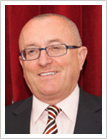
-
-
Prof. Dr. Ján Dusza, DrSc
Head of the Centre of Excellence for Nanostructured Materials and member of the Presidium of Slovak Academy of Science, Slovak Republic - Title : Nano-indentation and micropillar testing of WC grains in WC-Co hardmetal
-
Prof. Dr. Ján Dusza, DrSc
Prof. Ján Dusza received his PhD and DrSc degree in the field of physical metallurgy from Technical university in Kosice, Slovak Republic. Since 2003 he is professor and head of the Department of Structural Ceramics, IMR of Slovac Academy of Science.
His research interests is; microstructure and mechanical properties of hardmetals, ceramics, ceramic matrix composites, nano-composites, layered composites and coatings; High temperature characteristics of brittle materials / creep, slow crack growth, oxidation, etc; Fractographic failure analysis of brittle materials.
He is a member of the World Academy of Ceramics, European Structural Integrity Society (ESIS), Hungarian Academy of Sciences, Slovak Learn Society of SAS. His awards include; Alexander von Humboldt Fellowship, Award of the BMFT from Germany, University of London QMW College EC fellowship, Lisa Meitner fellowship at University of Vienna, Japan Fine Ceramics Centrum JSPS fellowship, EC grant, JRC, IAM Petten, The Netherland, Hertha Filnberg fellowship, Austrian Research Center Seibersdorf, Seibersdorf, etc.
He was/is in a consortium of eight EC 5 th -7th FP Projects. He was the chairman of a number of international conferences and is the founding chair of the conference „Fractography of Advanced Ceramics“. He was/is a visiting professor at a number of universities in Europe.




























